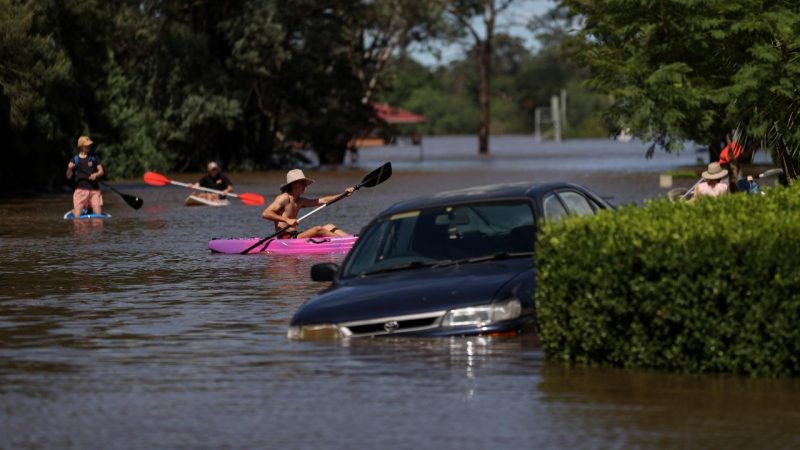- Residents on Australia’s east coast have started to return home this morning following New South Wales’ biggest deluge of rainfall in almost half a century
- Relentless rain for five days straight burst river banks, forcing more than 40,000 people to seek shelter in safe zones
- Six evacuation orders have now been lifted with more than 3000 people returning to their homes in the last 24 hours
- Two people died after their vehicles became trapped in floodwaters
- Almost 300 defence force personnel will join state emergency services from today to clear debris and assist in recovery efforts
Residents on Australia’s east coast have started to return home this morning following New South Wales’ biggest deluge of rainfall in almost half a century.
Relentless rain for five days straight burst river banks, inundating homes, roads, bridges and farms, and forcing more than 40,000 people to seek shelter in safe zones.
“The best advice I’ve received this morning is that most of the river systems we believe have peaked,” said NSW Premier Gladys Berejiklian during a televised news briefing.
“And now we are considering […] which communities are able to return back in the next few days, and we just ask for everybody’s patience.”
Six evacuation orders have now been lifted with more than 3000 people returning to their homes in the last 24 hours. However, around 20,000 are still waiting in rescue centres.
The Bureau of Meteorology said thousands of people remain on evacuation watch from rising floodwaters in several parts of NSW, despite forecasters not expecting any rain for the week.
“Even though the sun is now shining, the danger has not passed,” the agency said in a statement.
Two people died after their vehicles became trapped in floodwaters, and authorities have continued to warn people not to drive through the deluge.
Roughly 40 per cent of Australia’s 25 million people were affected by the storm that covered an area the size of Alaska, touching every state and territory but Western Australia.
Almost 300 defence force personnel will join state emergency services from today to clear debris and assist in recovery efforts.

